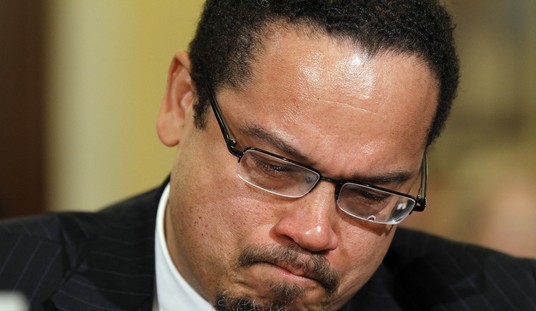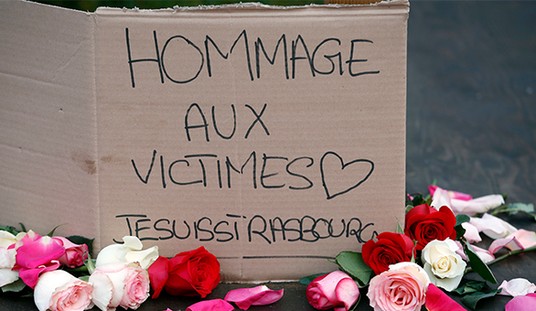Trent Duffy explodes in anger on the pages of the Washington Post today in response to his former boss, Scott McClellan, and his memoir of his time in the White House. Duffy claims that McClellan lied to him repeatedly about the nature of the book before its publication, and that McClellan lies in the book about McClellan’s state of mind in the White House. It serves as yet another indicator that McClellan juiced his book considerably for profit:
· Was it the truth or a lie when you told me, during a series of personal discussions in your West Wing office in late 2005 and early 2006 (at the apex of what you now call your period of “disillusionment” and “dismay”), that you were happy in your job and proud to serve President Bush and that you had no intention of leaving soon? What about in April 2006, when rumors swirled about a change at the podium, and you again told me you wanted to stay?
· Was it the truth or a lie when you told me around Christmas that the excerpts released by your publisher were being “taken out of context” and that your book wasn’t going to be a hatchet job?
· Was it the truth or a lie when you assured your former deputies that you wanted our “full participation” in the book?
· Was it the truth or a lie when, after countless briefings, you complained that the White House press corps was too tough, unfair, over the top and didn’t get it? ….
When the first “teaser” excerpts of your book hit the press in December, my phone lighted up with calls from reporters. Before responding, I called you; you said the publisher had taken liberties, you didn’t mean to attack the president and to point reporters to your 2006 interview with Larry King as your genuine take on things. You told me that your book was still about the poisonous partisan atmosphere in Washington and didn’t breathe a hint about Iraq or Hurricane Katrina. This was long after you were outside the White House bubble, amigo.
You also assured me, when we’ve talked the past two years, that you wanted your deputies to review the book and share our thoughts. Thinking you actually meant what you said, I reached out to you two months ago to take you up on your offer. Radio silence. Why didn’t you keep your promise to me and the other professionals who gave years of their lives working for you?
Why? The reasons appear obvious. McClellan and his publisher didn’t want any negative buzz about the book leaking out before publication. If former staffers had the opportunity to review the work as McClellan initially promised, the book would have been savaged before anyone could have promoted it for its anti-Bush value.
Unlike the pushback from people like Dan Bartlett, Trent Duffy has no reason to carry the White House water. He left the Bush administration’s press office before McClellan did. If anyone could corroborate McClellan’s story, it would be Duffy. His anger and shock at the book gives a strong indication that McClellan lied to everyone, possibly even the publisher.
Robert Novak doesn’t even think McClellan wrote the book:
In Scott McClellan‘s purported tell-all memoir of his trials as President Bush‘s press secretary, he virtually ignores Deputy Secretary of State Richard Armitage‘s role leaking to me Valerie Plame‘s identity as a CIA employee. That fits the partisan Democratic version of the Plame affair, in keeping with the overall tenor of the book, “What Happened: Inside the Bush White House and Washington’s Culture of Deception.” ….
In claiming he was misled about the Plame affair, McClellan mentions Armitage only twice. Armitage being the leaker undermines the Democratic theory, now accepted by McClellan, that Bush, Vice President Cheney and political adviser Karl Rove aimed to delegitimize Wilson as a war critic. The way that McClellan handles the leak leads former colleagues to suggest he could not have written this book by himself.
On Page 173, McClellan first mentions my Plame leak, but he does not identify Armitage as the leaker until Page 306 of the 323-page book — and then only in passing. Armitage, who was antiwar and anti-Cheney, does not fit the conspiracy theory that McClellan now buys into. When, after two years, Armitage publicly admitted that he was my source, the life went out of Wilson’s campaign. In “What Happened,” McClellan dwells on Rove’s alleged deceptions as if the real leaker were still unknown.
Eli Lake reviews What Happened for the New York Sun, and finds it dull and unexceptional:
“What Happened” offers no bombshells, and no genuine disclosures. It is a 368-page banality. And the man whose reputation suffers the most from its publication is Mr. McClellan himself, who comes off like another famous American victim of Stockholm Syndrome, Patty Hearst.
In this case, Mr. McClellan’s adopted political vocabulary is drawn from the left-wing base of the Democratic party and the journalists who took them seriously between 2003 and 2004. Like them, Mr. McClellan clings to the delusion that the White House’s handling of Joe Wilson’s allegations was a violation of public trust as destructive as Watergate. Mr. McClellan here adopts the lexicon of the activist left, referring at times to the White House’s “war on” Mr. Wilson, without ever quite disclosing the most important fact of the saga, that Mr. Wilson’s account of the episode was deeply misleading.
In light of what is now known about the entire Wilson affair — that Mr. Wilson was recommended for the trip to Niger by his wife, that his debriefing to the CIA on Saddam’s pursuit of uranium was less categorical than he would later claim, and that it was the deputy secretary of state, Richard Armitage, who first leaked Ms. Plame’s name, not Karl Rove — it is strange that the former press secretary still considers Mr. Wilson the victim and his old boss his tormenter.
Lake finishes with a good point about McClellan and his role in the Bush administration. Instead of opting for talent and intelligence, this administration has tended to value loyalty. That leaves them open for easy betrayal by people like McClellan, who lack the intelligence and talent to keep from being manipulated. That’s the biggest indictment of What Happened.








Join the conversation as a VIP Member